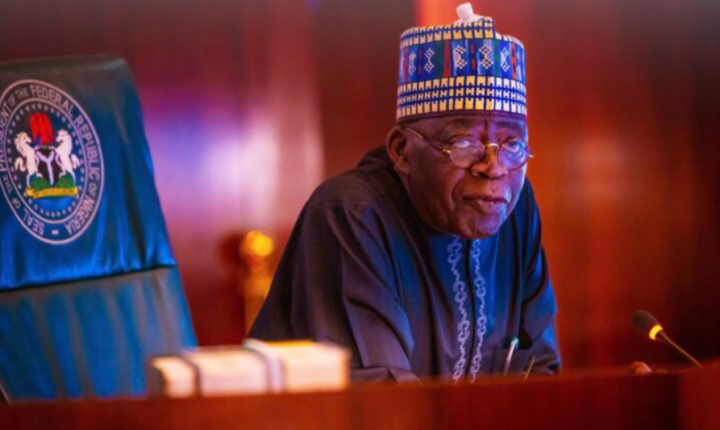President Bola Ahmed Tinubu has reaffirmed the Federal Government’s commitment to reviving Nigeria’s moribund steel industry, pledging to bring dormant steel companies back to life as part of his administration’s broader agenda to accelerate industrialisation and drive sustainable economic growth.
Speaking on Tuesday in Abuja, Tinubu described the steel sector as the “backbone of industrialisation” and emphasised that without it, Nigeria’s ambition to become a manufacturing hub and a competitive global economy would remain unrealised. He assured that the Renewed Hope Agenda is designed to transform the nation’s industrial base, with the steel sector as a central pillar.

“We cannot talk about industrialisation without a functioning steel industry. Steel is the foundation of infrastructure, manufacturing, and technological advancement. My administration is committed to ensuring that Nigeria not only produces steel locally but becomes a major player in the global steel market,” Tinubu said.
The President noted that several steel facilities, including the Ajaokuta Steel Company and other government-owned plants, have been inactive for decades due to mismanagement, inadequate investment, and policy inconsistencies. He pledged to change this trajectory through targeted investments, private sector partnerships, and enabling policies.
According to Tinubu, discussions are ongoing with reputable local and international investors to inject fresh capital, advanced technology, and operational expertise into the industry. He stressed that Nigeria must break free from its heavy reliance on steel imports, which drain foreign exchange reserves and increase infrastructure costs.
Part of the administration’s plan, he explained, involves a comprehensive audit of existing steel plants to determine their operational status, capacity potential, and rehabilitation needs. This will be followed by a phased implementation strategy, starting with the most viable facilities.
Tinubu also said the government will explore multiple funding models, including public-private partnerships (PPP), concession agreements, and direct government investment, to ensure that the revival projects are financially sustainable and competitive.
He highlighted that the revival of the steel industry would have far-reaching economic benefits, including creating thousands of direct and indirect jobs, stimulating local economies, and reducing the country’s dependence on foreign steel.
“Steel is the bedrock for constructing roads, bridges, railways, factories, and even defence equipment. When we produce it locally, we keep jobs here, we save foreign exchange, and we strengthen our sovereignty,” the President stated.
Industry experts have repeatedly underscored the importance of steel production to Nigeria’s industrialisation drive. The World Steel Association estimates that Nigeria spends billions of dollars annually importing steel and related products. This dependency, experts say, not only weakens the economy but also exposes it to global market shocks.
Tinubu assured that his administration is working closely with the Ministry of Steel Development and the Ministry of Solid Minerals Development to secure a steady supply of raw materials, particularly iron ore, limestone, and coal. The government is also committed to modernising mining operations, attracting exploration investments, and improving transport infrastructure connecting mining sites to steel plants.
To ensure the industry’s sustainability, Tinubu said environmental considerations will be a priority. He stressed that modern steel plants can be operated with minimal environmental impact if managed in line with international best practices.
As part of the strategy, the Federal Government plans to host an international steel summit later this year, bringing together policymakers, investors, and technical experts to exchange ideas and forge partnerships. The summit is expected to provide a platform for showcasing Nigeria’s potential as an emerging steel producer.
While many Nigerians have welcomed the President’s renewed focus on the steel sector, some stakeholders have expressed cautious optimism, citing past unfulfilled promises by successive administrations. They argue that this time, the government must match words with consistent action, transparency, and a long-term industrial plan that outlives political cycles.
Economic analyst Dr. Hassan Bello commented, “The revival of the steel industry could have a ripple effect across multiple sectors, from construction and automotive manufacturing to shipbuilding and energy. But success will depend on execution, policy stability, and the ability to attract serious investors.”
Tinubu, however, insisted that his administration is committed to delivering measurable results. “This is not just a political statement; it is an economic mission. We have set clear milestones, and Nigerians will see progress,” he said.
With renewed political will, strategic partnerships, and the right policy framework, industry experts believe Nigeria could achieve self-sufficiency in steel production within the next decade, positioning itself as a major industrial force in Africa and beyond.
Support InfoStride News' Credible Journalism: Only credible journalism can guarantee a fair, accountable and transparent society, including democracy and government. It involves a lot of efforts and money. We need your support. Click here to Donate
